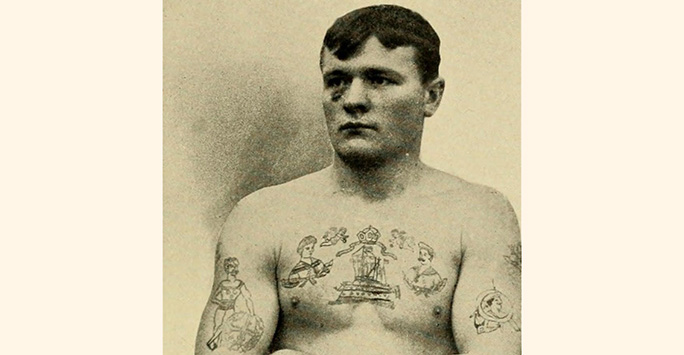
Pride in Sociology
In connection with LGBT+ History Month, Dr Mike Homfray from the Department of Sociology, Social Policy and Criminology has arranged a showing of the film Pride, together with a guest speaker, Paul Fairweather, who has been involved with a range of LGBT+ activism in Manchester for a number of years.
Posted on: 11 February 2021

Privy Council Hearings on Same-Sex Marriage in Bermuda and the Cayman Islands
This LGBT history month, the Judicial Committee of the Privy Council (JCPC) is hearing two historic cases relating to same-sex marriage from the British Overseas Territories of Bermuda (Attorney General for Bermuda v. Ferguson and Others, JCPC 2019/0077, 3rd and 4th February) and the Cayman Islands (Day and Another v. The Government of the Cayman Islands and Another, JCPC 2020/0033, 23rd and 24th February). While both cases involve same-sex marriage, these cases are fundamentally different in terms of the constitutional provisions they are based on and the legal context in which they arise.
Posted on: 5 February 2021

Petconsent January 2021 blog - Petconsent launches Veterinary Humanities UK special interest group
An exciting development for Carol Gray's Petconsent project has been the launch of the new Veterinary Humanities UK special interest group. This is a new initiative by Alison Skipper (a PhD scholar at KCL researching dog history) and Carol; it’s an attempt to create a community of researchers who look at veterinary topics from a humanities/social sciences basis.
Posted on: 29 January 2021

Petconsent December 2020 blog - Do vets and pet owners want to share decision-making?
This month, Carol Gray's Petconsent project looks at shared or collaborative decision-making. Our final blog of 2020 looks back at the end-of-project workshop that took place on 8th December 2020. Thirteen participants, including vets, vet nurses and animal owners, spent an afternoon on-line discussing shared decision-making in the vet clinic.
Posted on: 18 December 2020

A Rapprochement between the Universality of Human Rights and Cultural Relativism
On International Human Rights Day, let us remind ourselves that “all human beings are born free and equal in dignity and rights”. This fundamental statement implies the key principle of the universality of human rights. Despite the incredible importance of the universality of human rights, this principle has been criticised by cultural relativists who argue that human rights, as set forth in international human rights documents, emanate from Western cultural values and therefore are not universally valid. They hold that every culture includes different beliefs, values, norms and practices which are all valid and should be respected. They argue that those norms and practices considered wrong in some cultural contexts are justified in others.
Posted on: 10 December 2020

Petconsent November 2020 blog - Research in Pet Patients
This month’s Petconsent blog looks at research in pet patients. There’s been a lot of news coverage of the volunteers who helped to test the three COVID vaccines that are being developed. People who put themselves forward as ‘guinea pigs’ for testing these new vaccines have been hailed as heroes. Each one of them took a risk. I’m sure they went through a very lengthy consent process, where a researcher talked them through all the possible risks of being injected with a vaccine that had undergone safety tests in the lab before being produced for use in volunteers.
Posted on: 30 November 2020

25 November - International Day for the Elimination of Violence Against Women
Throughout her career, Prof Sandra Walklate has maintained an interest in criminal victimisation. She is currently conjoint Professor of Criminology at the University of Monash, Melbourne, Australia and has recently worked on a number of 'Shadow Pandemic' working papers on domestic violence during COVID-19. Sandra's Monash University report on 'lone wolf' terrorism won the best paper award from the Division of Critical Criminology of the American Society of Criminology (2020).
Posted on: 25 November 2020

How tattoos became fashionable in Victorian England
Dr Zoe Alker is a lecturer in the University of Liverpool's Department of Sociology, Social Policy and Criminology. Her research centres on histories of crime and justice in the nineteenth century. Through digital analysis, and the use of a range of interdisciplinary social research techniques to recreate the lives, families, and neighbourhoods of Victorian offenders, her work uses historical data to inform contemporary criminal justice policy.
Posted on: 19 November 2020

Sex Workers and Covid-19
Dr Gemma Ahearne is a University Teacher in the Department of Sociology, Social Policy and Criminology. In this blog Gemma discusses the importance of research-led teaching, as well as her recent work designing and facilitating a Needs Assessment for Scottish sex worker charity, Umbrella Lane, in response to the Covid-19 pandemic.
Posted on: 16 November 2020
Blog

Pride in Sociology
In connection with LGBT+ History Month, Dr Mike Homfray from the Department of Sociology, Social Policy and Criminology has arranged a showing of the film Pride, together with a guest speaker, Paul Fairweather, who has been involved with a range of LGBT+ activism in Manchester for a number of years.
Posted on: 11 February 2021

